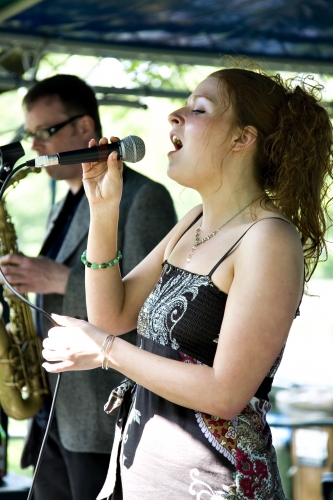Tips for Singing Karaoke

For some, Karaoke is a way for drunk people to take the piss out of songs by singing them badly. For others, it is a way of releasing their inner ambitions and displaying latent performing talent. The fact is that good karaoke will be enjoyed by all.
When I was travelling alone in the USA, I found singing Karaoke a good way of generating a good vibe and meeting people. Here are a few tips I picked up along the way:
1. Create a Short-List of Songs
Go through the song catalogue and note the songs that you like and would consider to have popular appeal. Avoid “We are the World” by USA for Africa at all costs.
2: Match Songs to Your Vocal Range
Your vocal range is the difference in pitch between the lowest note you can sing and the highest. Knowing your range will allow you to quickly work out whether you can sing a particular song.
Men’s vocal ranges are often characterised as Bass, Baritone, Tenor and Countertenor. Most men’s normal (modal) voice lies in the Baritone range. Women’s ranges are often characterised as Contalto, Mezzo-soprano and Soprano.
Most people describe the width of their range by the number of octaves they can sing in. In an octave, there are 8 notes and 12 semi-tones. Each octave is double the pitch of the octave below it and half the pitch of the one above it.
The late Freddie Mercury, leader singer of Queen, had a reported range of four octaves. Ringo Starr of the Beatles reportedly has a narrow range and the song “With a Little Help From my Friends” was written specially for him. On a bad day, I usually manage one octave, on a good day, two, and on any other day, somewhere in-between.
Test each song on your short-list by humming or singing the chorus quietly to yourself. If you can’t match the pitch, perhaps try singing one octave lower. The late Kurt Cobain of Nirvana actually did this as a joke when he performed “Smells Like Teen Spirit” on the British show Top of the Pops. I actually liked the result.
If you are only just outside the range, see if your karaoke venue has the ability to transpose the song (see point 5 below). If you’re a man and you go too high, your voice will break up and you will only be able to get it back by singing in falsetto. Save that for songs by the Bee-Gees, Tiny Tim or Alvin and the Chipmunks, and even then, proceed at your own risk.
3. Warm up your vocal cords
Take a deep breath, keeping your shoulders low. Starting from your lowest note, sing “Do-Re-Mi-Fa-So-La-Ti-Do” up the scale, until you reach the top of your range, then sing it in reverse “Do-Ti-La-So-Fa-Mi-Re-Do” down the scale.
Do it again, but this time try and sustain the sound at each note for a few seconds, singing “Aah” and “Ooh”. Ideally, the sound should be clean and consistent with no undesired wavering (vibrato). It is better to achieve a quality sound within a narrower range.
Your vocal range may vary with the weather, air temperature and time of the day. Drinking hot water or tea is supposed to loosen your voice. Strong alcoholic beverages like wine or spirit usually have the opposite effect.
4. Avoid Songs with Heavily Processed Vocals
People who know your song will be comparing your singing to that on the official recording. Unless you know what you are trying to achieve, avoid songs where the singer’s vocals have undergone heavy processing and audio effects. Examples:
- Chorus effects: Queen – “I want it all”
- Auto-tune/Vocoder: Cher “Believe”, Madonna’s “Hung Up”, most recent Kylie Minogue songs
- Reverb & Digital delay: Most Enya songs
5. Cheat By Transposing the Key of the Song
Often, we can sing most of a song except for hitting a few high notes. One such example is the chorus from the 1961 number 1 American hit ‘Runaway’ by Del Shannon, which has a whole octave jump after the first phrase – “And I wonder – I wah-wah-wah-wah-wonder…why – wah-wah-wah-wah-why, why she ran away”.
Some Karaoke places can program their machine to (tranpose) the key of the song by a few semitones in either direction. There are twelve semi-tones in an octave. The great majority of people do NOT have perfect pitch and will not notice at all.
Disclaimer: I am not a trained musician, singer or musicologist. Please keep any criticism constructive.


Add Your Comments